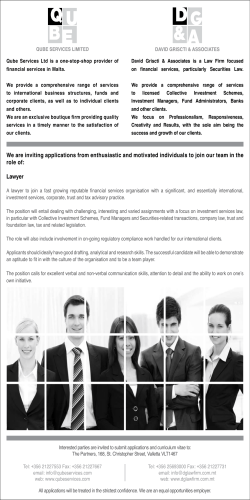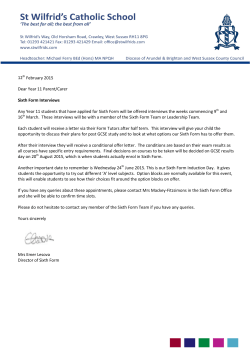
Ethics and Professionalism in the Sixth Circuit
OHIO STATE LAW JOURNAL SIXTH CIRCUIT REVIEW VOLUME 76 Ethics and Professionalism in the Sixth Circuit STEVEN A. DELCHIN∗ TABLE OF CONTENTS I. INTRODUCTION ................................................................................ 19 II. THE DUTY TO AVOID FRIVOLOUS AND UNWARRANTED APPEALS ... 19 III. THE DUTY OF CANDOR .................................................................... 20 IV. THE DUTY TO DISCLOSE ADVERSE AUTHORITY .............................. 21 V. THE DUTY OF COMPETENCE ............................................................ 21 VI. CONCLUSION: SOME FINAL THOUGHTS............................................ 22 I. INTRODUCTION Appellate ethics and professionalism. If you survey the literature, you generally will find little professional commentary on the topic. Part of the reason, of course, is that appellate practice is very specialized, and there are only a handful of ethical rules specifically targeting appellate practitioners. But the applicable rules are critically important, and they need to be the focus of all appellate lawyers. Professionalism concerns are also important. While the rules of professional conduct set the floor that supports our status as lawyers in good standing, professionalism is the ceiling (the higher standard) to which all lawyers should aspire. This Comment highlights some of the key ethical and professionalism concerns for lawyers practicing before the Sixth Circuit. II. THE DUTY TO AVOID FRIVOLOUS AND UNWARRANTED APPEALS Ethical considerations arise before a lawyer even decides to appeal a case to the Sixth Circuit. Rule 3.1 of the ABA Model Rules of Professional Conduct, entitled “Meritorious Claims and Contentions,” prohibits unwarranted appeals. It states: A lawyer shall not bring or defend a proceeding, or assert or controvert an issue therein, unless there is a basis in law and fact for doing so that is not frivolous, which includes a good faith argument for an extension, modification or reversal of existing law.1 ∗ Senior Attorney, Squire Patton Boggs (US) LLP. 1 MODEL RULES OF PROF’L CONDUCT R. 3.1 (2013). 20 OHIO ST. L.J. FURTHERMORE SIXTH CIRCUIT REVIEW [Vol. 76 Rule 38 of the Federal Rules of Appellate Procedure, in turn, makes clear that frivolous appeals are sanctionable, stating “[i]f a court of appeals determines that an appeal is frivolous, it may, after a separately filed motion or notice from the court and reasonable opportunity to respond, award just damages and single or double costs to the appellee.”2 These rules are generally straightforward, and yet lawyers continue to pursue appeals that cannot possibly prevail. The classic example is where a party’s legal arguments are foreclosed by a prior panel decision. In the Sixth Circuit, a three-judge panel cannot overrule the decision of another panel.3 As such, there is no value in pursuing an appeal where the panel will be bound by a prior panel’s decision. Instead, the solution in such a situation is Rule 35 of the Federal Rules of Appellate Procedure. As Judge Gilbert Merritt has highlighted, there are times when an appeal should initially be heard en banc, rather than by a three-judge panel, so as to “avoid the inefficiency of appealing to a panel that could not grant [a party] the remedy that [it] seeks . . . .”4 While en banc hearings are “not favored” (indeed, they remain rare), the Sixth Circuit has signaled that judicial inefficiency is more disfavored. The lesson from the Sixth Circuit is clear: Do not pursue an appeal when your legal arguments are absolutely foreclosed by a prior panel decision. The irony in the Sixth Circuit’s lesson, of course, is that too many petitions for panel rehearing and rehearing en banc are filed in the Sixth Circuit. Indeed, motions for rehearing are perhaps the most abused appellate procedure. Always keep in mind the limited nature of a petition for panel rehearing and rehearing en banc. As Judge Karen Nelson Moore emphasized in her oft-cited dissent in Bell v. Bell, a panel “getting it wrong” does not qualify as a matter for rehearing.5 III. THE DUTY OF CANDOR As officers of the court with an obligation to protect the integrity of the judicial process, lawyers owe a duty of candor to the Sixth Circuit. Rule 3.3 of the ABA Model Rules of Professional Conduct governs a lawyer’s duty of candor. The rule forbids a lawyer from “mak[ing] a false statement of fact or law to a tribunal or fail[ing] to correct a false statement of material fact or law previously made to the tribunal by the lawyer[.]”6 2 FED. R. APP. P. 38. 3 See 6TH CIR. R. 206(c). 4 See Lewis v. Humboldt Acquisition Corp., 634 F.3d 879, 881 n.4 (6th Cir. 2011). 5 Bell v. Bell, 512 F.3d 223, 250 (6th Cir. 2008) (Moore, J., dissenting) (noting instead that “[a] suggestion for rehearing en banc is an extraordinary procedure which is intended to bring to the attention of the entire Court a precedent-setting error of exceptional public importance . . . .”) (citation omitted). 6 MODEL RULES OF PROF’L CONDUCT R. 3.3(a)(1) (2013). 2015] ETHICS AND PROFESSIONALISM IN THE SIXTH CIRCUIT 21 The duty of candor, however, extends beyond simply the duty to avoid making false statements of fact or law to the court. It also includes portraying the factual record accurately and fairly. Sixth Circuit Rule 28, which addresses “references to the record,” provides that “[a] brief must direct the court to those parts of the record” to which the brief refers.7 Thus, fair and accurate citations to the record matter just as much as avoiding making false statements to the court. Factual statements without record citations are an immediate red flag to the judges and their law clerks. The duty of candor also explains why, for example, appellate practitioners are required to include jurisdictional statements in their appellate briefs alerting the Court of Appeals to potential problems with subject matter and appellate jurisdiction.8 As explained next, a lawyer’s candor also can bolster the lawyer’s credibility with the Court. IV. THE DUTY TO DISCLOSE ADVERSE AUTHORITY Related to the duty of candor is the lawyer’s ethical duty to disclose adverse authorities to the court. ABA Model Rule 3.3(a)(2) states that a lawyer shall not knowingly “fail to disclose to the tribunal legal authority in the controlling jurisdiction known to the lawyer to be directly adverse to the position of the client and not disclosed by opposing counsel[.]”9 This rule does not strip lawyers of their ability to be vigorous and partisan advocates on behalf of their clients. But it does mean that lawyers must refrain from affirmatively misleading the court as to the state of the law. Usually this requirement is straightforward, but consider the situation where certain language from an opinion that appears to render it directly adverse to the position of a lawyer’s client is viewed by that lawyer as dicta. Should the lawyer avoid citing the case? From a professionalism (if not an ethical) standpoint, the correct approach is to disclose the troubling language to the court. Ultimately, it is up to the Sixth Circuit to determine whether the language is truly dicta. And in any event, effective appellate lawyers will use such disclosure as an opportunity to effectively distinguish the case and, in the process, bolster their clients’ case. A lawyer’s candor also will enhance the lawyer’s credibility in the eyes of the judges and law clerks. V. THE DUTY OF COMPETENCE ABA Model Rule 1.1 states that “[a] lawyer shall provide competent representation to a client.”10 For appellate lawyers, the duty of competence includes such basic notions as being aware of the applicable rules and fully 7 6TH CIR. R. 28(a). 8 See FED. R. APP. P. 28(a)(4). 9 MODEL RULES OF PROF’L CONDUCT R. 3.3(a)(2). 10 MODEL RULES OF PROF’L CONDUCT R. 1.1 (2013). 22 OHIO ST. L.J. FURTHERMORE SIXTH CIRCUIT REVIEW [Vol. 76 understanding the substantive law at issue in an appeal (even if this means associating with another lawyer who is an expert in a particular field of law). But there is so much more to the duty of competence. The competent lawyer also must know the record. When I clerked for the Sixth Circuit, one of the judges asked an attorney a simple factual question regarding the procedural history of the case. The lawyer shot back, “Your Honor, I’m not sure; I was not trial counsel.” It clearly was not a proper response for the appellate attorney to respond to the judge’s inquiry by stating that the lawyer was not involved in a prior aspect of the case. It is the appellate lawyer’s duty to know all phases of the case, and to be prepared to discuss them at oral argument. The competent attorney also will give proper focus to the standard of review in a case. Rule 28(a)(9)(B) of the Federal Rules of Appellate Procedure provides that briefs must contain “a concise statement of the applicable standard of review.”11 Despite this rule, too many appellate attorneys fail to think long and hard about the applicable standard of review only to run into problems at oral argument. Finally, the duty of competence subsumes the lawyer’s responsibility to know the court’s rules backwards and forward. This includes the Sixth Circuit’s local rules and internal operating procedures, which are available on the court’s website.12 If the rules do not provide a definitive answer, it makes sense to call the case manager for guidance. VI. CONCLUSION: SOME FINAL THOUGHTS There are a number of ethical and professional pitfalls confronting the unwary appellate practitioner in the Sixth Circuit. And consider the fact that when appellate lawyers fail to meet the standards of ethics and professionalism, their shortcomings or misdeeds are more likely to be reported in a published court opinion, which not only can be professionally embarrassing but also can lead to potential disciplinary proceedings. Ethics and professionalism matter in the Sixth Circuit. 11 FED. R. APP. P. 28(a)(8)(B). 12 See Rules and Procedures, U.S. CT. APPEALS FOR SIXTH CIRCUIT, http://www.ca6.uscourts.gov/internet/rules_and_procedures/rulesproc.htm (last visited Feb. 19, 2015), archived at http://perma.cc/3FQL-HY4C.
© Copyright 2026









